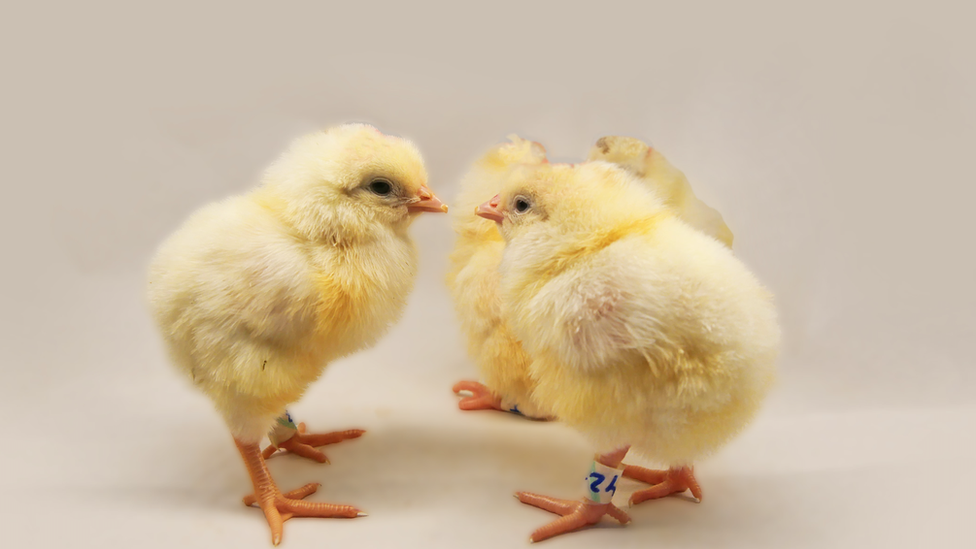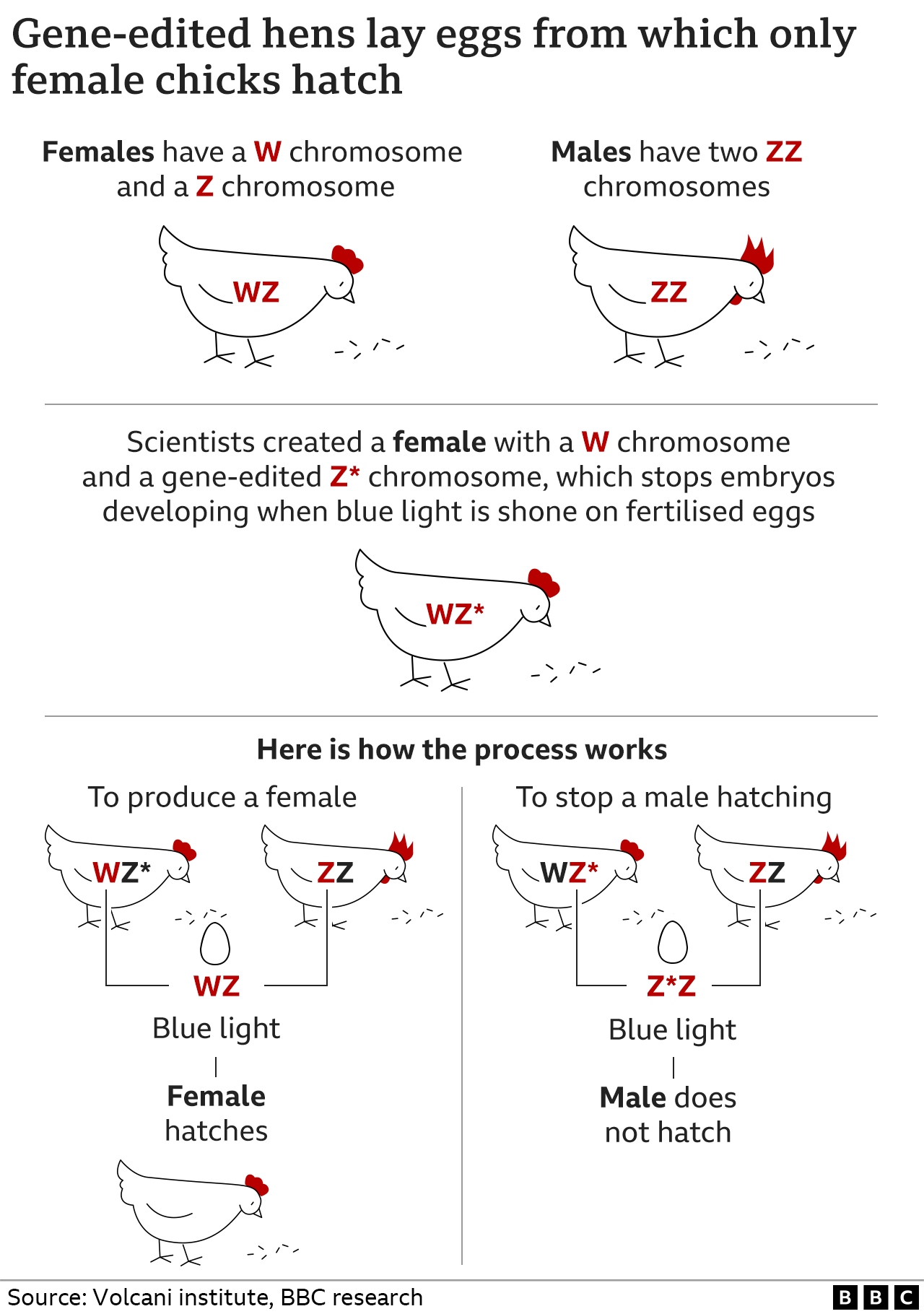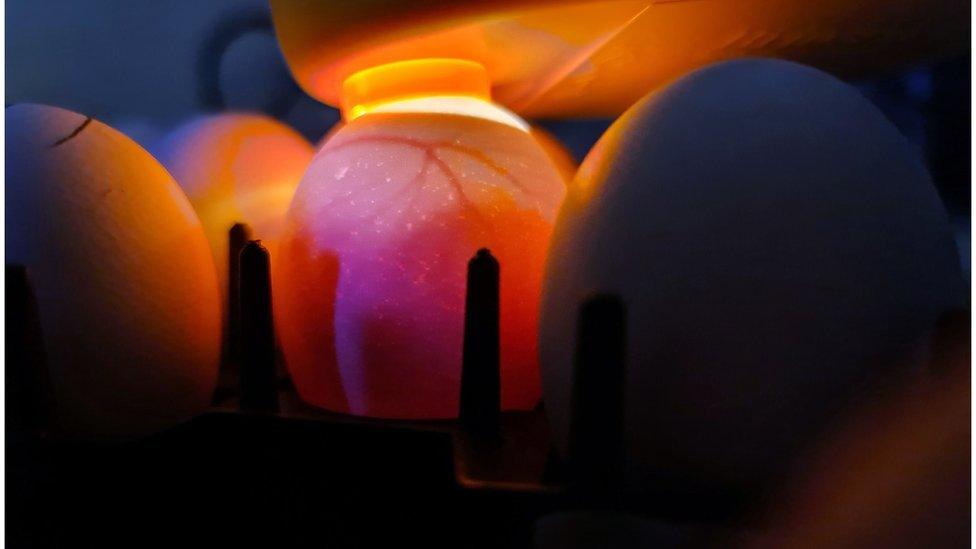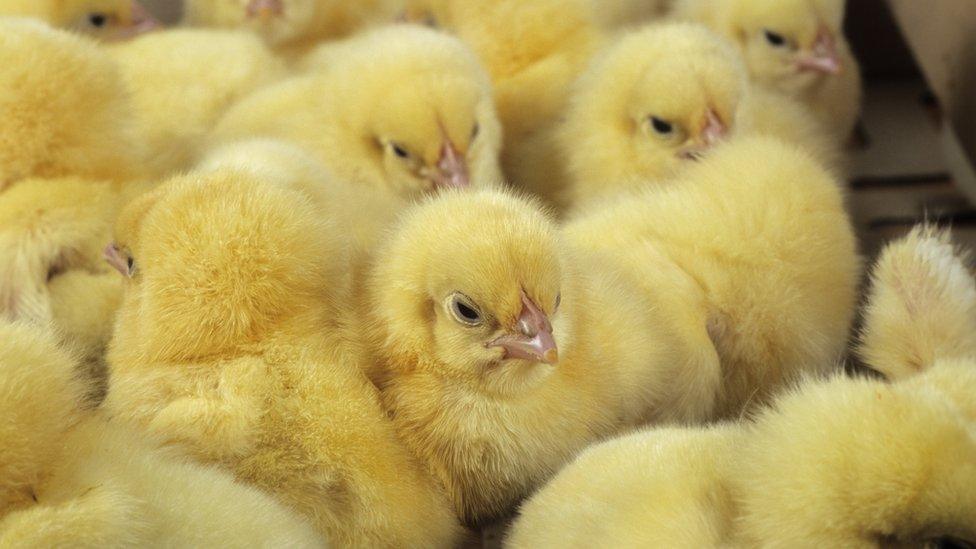Gene-edited hens may end cull of billions of chicks
- Published

These gene-edited chicks will produce female only offspring when they mature
Israeli researchers say they have developed gene-edited hens that lay eggs from which only female chicks hatch.
The breakthrough could prevent the slaughter of billions of male chickens each year, which are culled because they don't lay eggs.
The female chicks, and the eggs they lay when they mature, have no trace of the original genetic alteration
Animal welfare group, Compassion in World Farming, has backed the research.
Dr Yuval Cinnamon from the Volcani institute near Tel Aviv, who is the project's chief scientist, told BBC News that the development of what he calls the ''Golda hen'' will have a huge impact on animal welfare in the poultry industry.
"I am very happy that we have developed a system that I think can truly revolutionise the industry, first of all for the benefit of the chickens but also for all of us, because this is an issue that affects every person on the planet," he said.
The scientists have gene edited DNA into the Golda hens that can stop the development of any male embryos in eggs that they lay. The DNA is activated when the eggs are exposed to blue light for several hours.
Female chick embryos are unaffected by the blue light and develop normally. The chicks have no additional genetic material inside them nor do the eggs they lay, according to Dr Cinnamon.
"Farmers will get the same chicks they get today and consumers will get exactly the same eggs they get today," he said. "The only minor difference in the production process is that the eggs will be exposed to blue light."

Dr Cinnamon's team has not published their research because it is planning to license the technology through its spin out company, Huminn Poultry, so scientists independent of the research group have not been able to assess the claims.
But the Israeli team has worked in conjunction with the UK-based animal welfare organisation Compassion in World Farming (CIWF) whose staff have visited the firm and followed the research for three years. Its chief policy advisor Peter Stephenson said that the breakthrough could be a "really important development" for animal welfare.
"Normally I am very wary of using gene editing of farm animals. But this is an exceptional case and I, and my colleagues at CIWF are supportive of it," he said.
''The next important step is to see whether the hen and the female chicks she produces, who will lay eggs for human consumption, can go through a commercial lifespan without any unexpected welfare issues arising.''

Male embryos inside the eggs have a genetic kill switch which activates when exposed to blue light
Legislation is currently passing through the UK Parliament that would allow limited gene editing for commercial farming in England. It's thought once the bill is passed early next year, that regulations would be eased gradually, allowing the technology to be used only for plants to begin with.
Gene editing (GE) is perceived by the government as more publicly acceptable than the older technique of genetic modification (GM). GE normally involves controlling genes by removing DNA , whereas GM usually adds DNA, sometimes from another species.
CIWF estimates that around seven billion male chicks are slaughtered by the egg-producing industry each year shortly after they are born because they are of no commercial value. The process is also time consuming for firms, which have to sort males from females shortly after they hatch by hand.
The German government banned the mass killing of male chicks at the start of this year. And the French have similar proposals to start at the beginning of next year. Most other EU nations have expressed their concerns about the practice and many have called for EU-wide legislation. The UK government has yet to comment on its stance on the practice.

Compassion in World Farming says millions of male chicks are killed in the UK each year
Dr Enbal Ben-Tal Cohen, who led the research, told BBC News that the system is at an advanced stage of development and the team is working with breeders to refine the process.
"Through many years of research, there were numerous difficult challenges that we successfully overcame, and finally now when we have a viable solution, I hope that the industry will adopt it very soon," he said.
Follow Pallab on Twitter, external
Related topics
- Published3 December 2021
